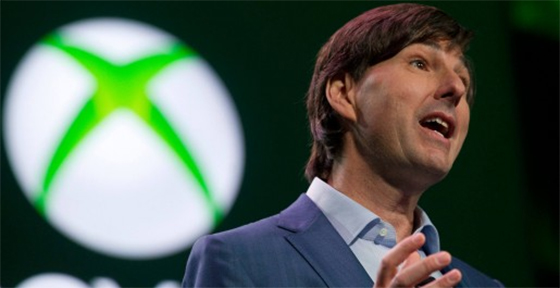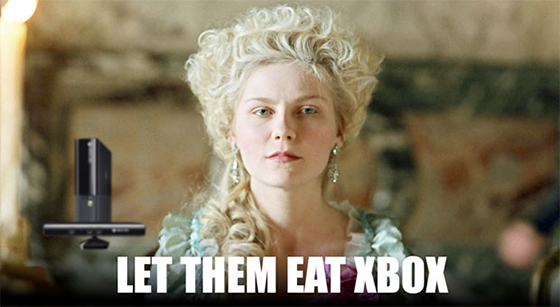E3 vs PR – Part III: Microsoft Monday and Mixed Messages
Let’s talk about how important Monday was for determining the game industry’s narrative for the coming months.
Let’s also talk about what it means to gamers like you, and me, and how industry giants like Microsoft and Sony communicated with us via the grand stage of E3.
Monday saw PR-beleageured Microsoft take the stage first, around 9:30 a.m. Pacific Time. There’s no beating around the bush – they had an uphill battle to wage, one very much set up by their own PR snafoos over the last month.
Their new game console, the Xbox One, has a promising stable of games and entertainment to offer customers, but the system is beset by a series of draconian, anti-consumer policies that the general public has become very, very vocal about. Microsoft, being a software giant in the home-computing space, in a way its competitors Sony and Nintendo aren’t, may be forcing its games division to adopt policies and restrictions that jive with that space, but not with gamers.
It’s a reality that any company with its toes in multiple ponds has to face. How do you govern yourself according to the rules of multiple industries or sub-industries, keeping your executives, partners and stakeholders happy, while still publicly maintaining that you’re always looking out for the best interests of your customers?
Customers are right to be angry about the policies in question – which include restrictions on the use of purchased entertainment, different degrees of prohibition on the sale or trade of property, and a mandatory internet connection for the system for authentication purposes. These are cumbersome rules, though not without some purpose.
Among the purposes? Being always-connected opens up new possibilities for gaming, including automatic updates, streamlined matchmaking, seamless online play, and more. The No-Used policy has its own potential brightside; if Microsoft wants to cut used game sales out of the picture and get more of the money cycling around in the industry directed back their way, the potential exists to offer more affordable prices on new software, making new games a more attractive buy.
The problem? None of these brightsides or greater purposes were clearly messaged to the public. The reason behind these rules wasn’t elaborated on. It was barely even stated.
How is a customer, a paying customer, supposed to react to being given new rules on how they ‘have fun’ without being shown why the new rule may benefit them in the long run?
The problem then is in how ‘bad news’ was given to a hungry customer base. And how to deliver bad news is a skill at the very core of Public Relations.
This bad news was delivered poorly, precisely because it didn’t seem to have a controlled delivery at all.
Instead of owning the situation from the moment the new platform was revealed in May, and controlling the larger narrative around their system right up to the world stage of E3, Microsoft permitted the bad news to leak out in bits of conflicting messages at an appallingly regular pace over the last three weeks. We heard more via an interview with one executive, or via an errant tweet, or through an unclear press release.
Even now, after all the fuss, the public, and even some of Microsoft’s partners are unclear as to how some of the system’s policies will work.
What’s more, two Microsoft executives have been quoted in interviews rather actively suggesting that people (willing customers!) who can’t accept the new restrictions regress to the old Xbox platform and enjoy that instead.
This isn’t smart PR folks. You don’t tell your eager customer base that your new platform isn’t an inclusive and welcoming solution. You don’t issue brazen dismissals of customer concerns. Even if a majority of customers can get around a new rule, this behaviour from Microsoft is indicative of a larger strategy failure that seems to be governing the PR for executives and other MS representatives.
And that’s seriously troubling for me, my fellow gamers, and anyone else who wants to know where to throw our hard-earned dollar this holiday season.
I have plenty more to say about Nerd Christmas (E3), in particular, how Sony and Nintendo participated in the E3 narrative that was governed by the Microsoft debacle. I also want to look at Apple (as a devout Mac/iOS convert of three years) and talk about how their huge news on Monday nearly got lost on me and my peers; this, in a post on the Importance of Timing in Communications & PR.
This blog series is also hosted on my own micro-blog, Voice of Budrickton.
Previously on E3 vs PR:
Part II: The Whirlwind of E3’s Media Days
Part I: XBox One – How Microsoft let their key moment get ‘xboned’
(Credit to Engadget for the 2nd photo: Let Them Eat Xbox. Well done lads)





